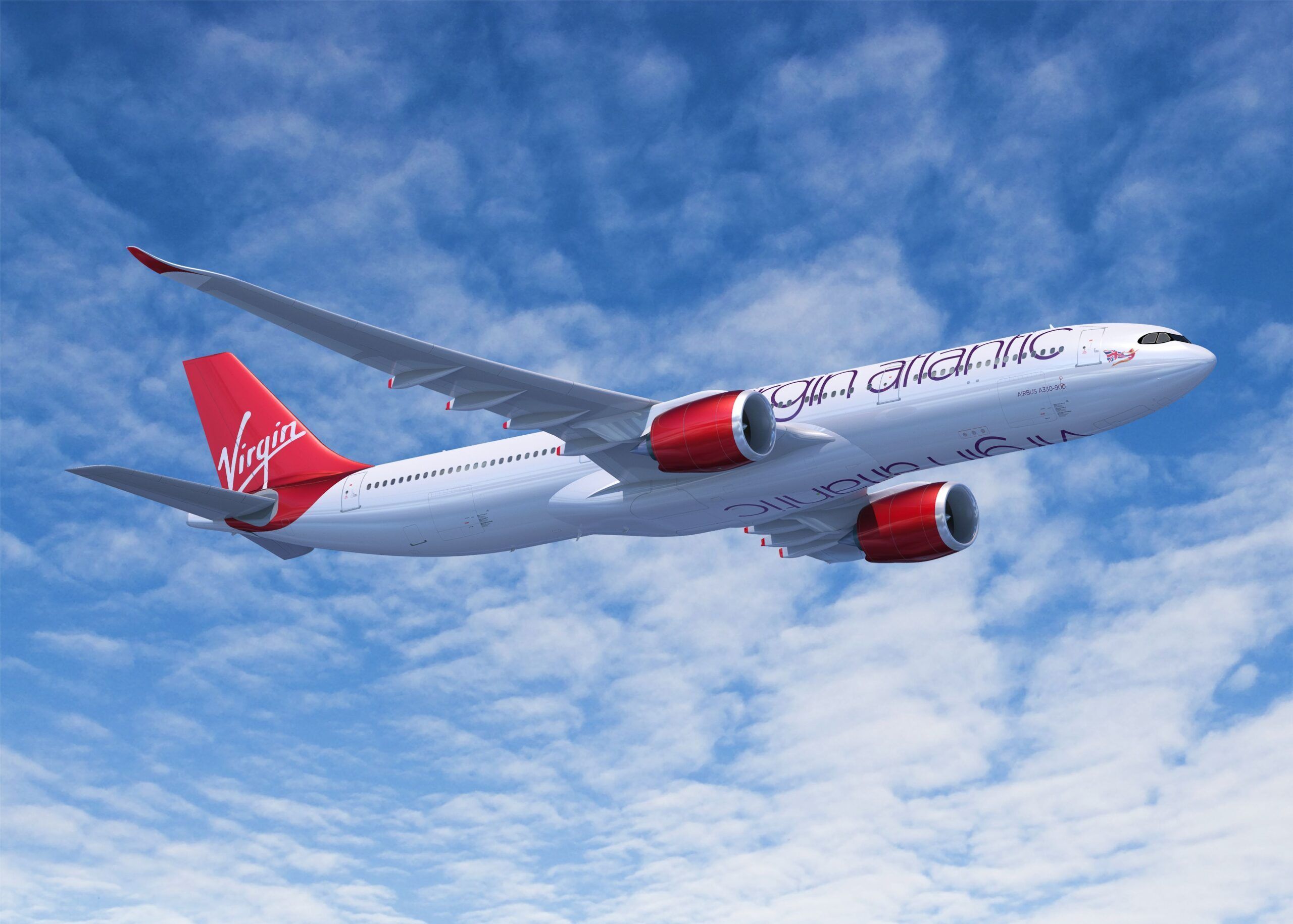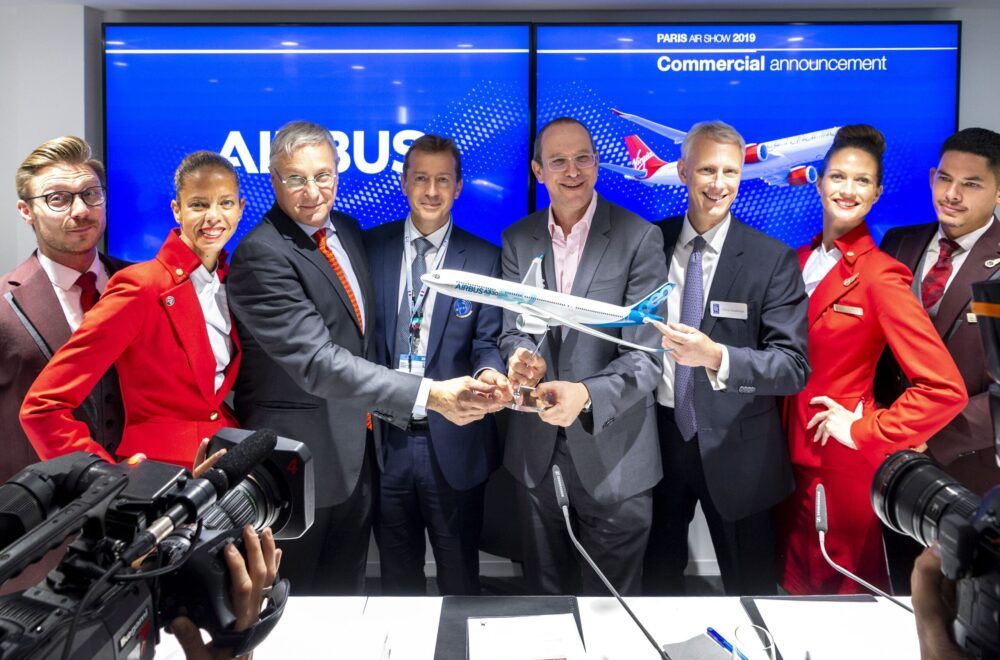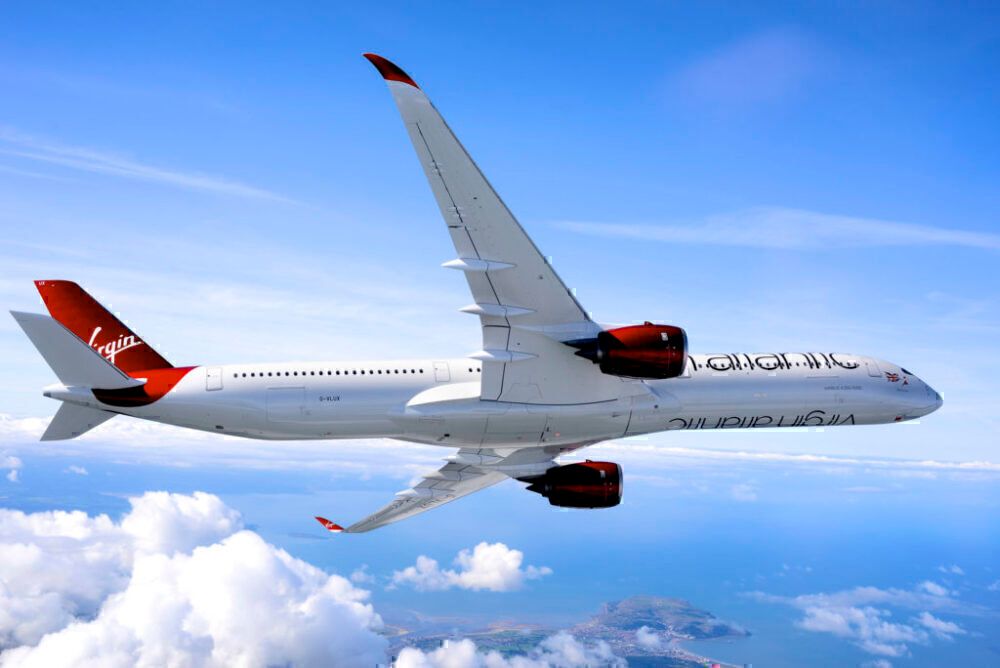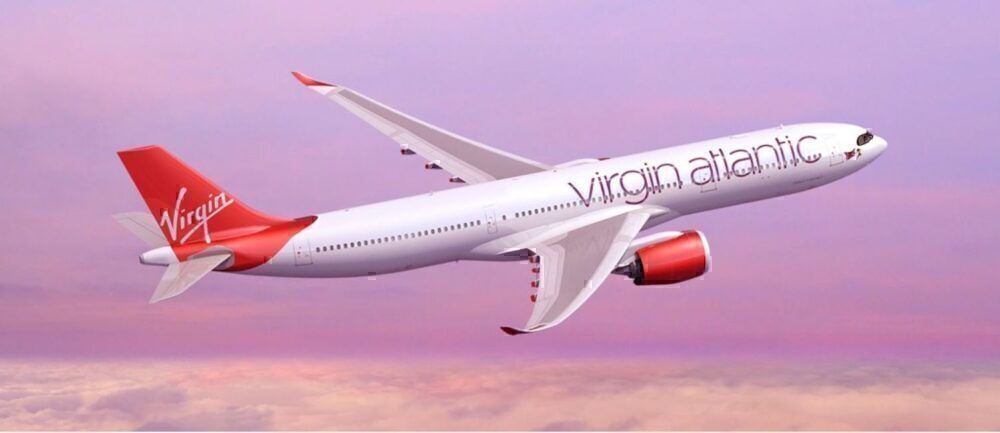As Virgin Atlantic reshuffles its fleet to become a leaner, more efficient airline, it has waved goodbye to the last of its four engine aircraft and is preparing to face the future as a twinjet only carrier. The airline’s large order for A330neos has been pushed back as part of its recapitalization plan, but not for long. CEO Shai Weiss says we can expect them by 2022.
A330-900s for Virgin in 2022
Virgin Atlantic is an airline that is synonymous with the Boeing 747. It was where the journey started, all those years ago, when Branson leased one 747 to begin operations. Now, no more remain at the airline.
During an interview for CAPA Live yesterday, Virgin Atlantic CEO Shai Weiss spoke warmly of the 747, saying it deserved a place in ‘the pantheon of greats’. However, he noted that there are far more sustainably conscious planes out there, and that Virgin’s future fleet strategy is firmly focused on the A350, 787 and, of course, the A330.
Virgin announced an order for 14 A330neos at the Paris Air Show last year, with an additional six as options, making it the first UK airline to place a firm order for the type. At the time, the aircraft were planned for delivery next year, but as part of Virgin’s staggering £1.2bn recapitalization plan, these had been pushed back.
How far back, we weren’t too sure, but Weiss said we can expect the first A330-900s to start flying for Virgin as soon as 2022. He said,
“The A339 should start appearing in the back end of 2022.”
Weiss further stated that, once these aircraft begin to arrive, Virgin will be the youngest and most sustainable fleet operating across the Atlantic. He said,
“[Our fleet] has already reduced in 2019 by about 18% in terms of CO2 emissions. It will go another 10 to 12% further once the new complete fleet is in there.”
Stay informed: Sign up for our daily aviation news digest.
Smaller but more efficient
The Virgin boss admitted that the future fleet of the long-haul airline would come back somewhat smaller than it had been pre-COVID. However, he says that, through the improved efficiencies realized with the recapitalization plan, it will still be able to continue to fly just as much as it has before. Weiss said,
“What's interesting is, despite the fact that we've shrunk from about 46 to around 36, 37 planes, the actual number of sectors that we can fly is exactly the same. That's based on the efficiency of our operations, our concentration in airports … we’re 20% more efficient off the bat.”
Shai spoke positively about the performance of the A350s, of which the airline has so far received six of its total order of 12. While all 12 should have been delivered by the end of 2021, the order shuffling probably means no more will be received for around 12 months. Nevertheless, Weiss remains committed to the type, saying it is performing ‘tremendously well’.
Keeping one eye on sustainability
With the arrival of the A330neo in 2022, Virgin will be a big step closer to its goal of improving the fuel efficiency of its fleet by 2024. The airline had planned a complete renewal of its fleet from 2014, creating one of the youngest fleets in the skies with an average age of just 5.3 years by 2024. The fleet, overall, should be 32% more efficient than it was a decade ago.
For 2021, the airline is not planning to take any more aircraft deliveries as far as we know. It will rely instead on its existing Dreamliners, with the six A350s and the remaining A330-300s soldiering on for a little longer. The A330-200s have gone, as have all the quadjets at the airline.
Weiss remains pragmatic about the influence of COVID on the airline. He believes this is a reset that was much needed in aviation, and says it’s an opportunity to really push the sustainability agenda. He commented,
“I think if we don't use this opportunity to double down on sustainability, shame on our industry. Because once the population … gets out of the pandemic, they will also look at how people reacted in the in the post-pandemic era. Sustainability is not going away.”
Virgin remains committed to net zero operations by 2050, and with the quadjets out and new twinjets incoming, it’s well on its way to achieving that goal.




